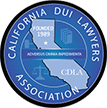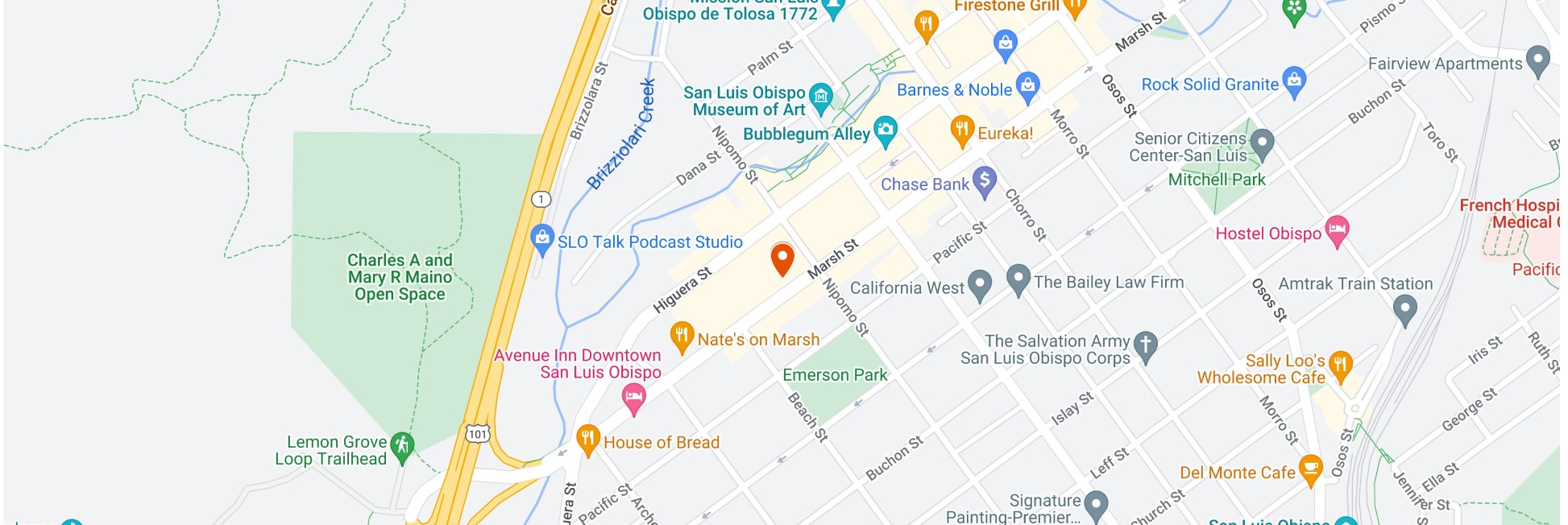The law applicable in California discourages drunk driving mainly for the safety risks it creates for road users. Therefore, if you face arrest and a DUI charge, you may face trial and possible penalties depending on whether you are guilty of the offense. Working with a DUI attorney is important, as their involvement in your case can help you present strong defenses on your behalf.
At San Luis Obispo DUI Attorneys, we work closely with all our clients to provide the best DUI defense legal assistance. Our team has gathered experience to help with proper case assessment and legal advice over the years. Thanks to this, we are a reliable legal partner to any client facing DUI charges in San Luis Obispo, California.
Understanding What a DUI Charge Entails
The California Penal Code provides the laws applicable to prevent motorists from driving under the influence. Since various factors result in a DUI offense, the statute prohibits actions related to drunk driving, with each provision handling the specific prohibited action.
Firstly, section 23152(a) of the California Vehicle Code makes it unlawful for any motorist to drive under the influence of alcohol. The term alcohol defines a beverage with a measured percentage of intoxicants that alter the normal functioning of your brain.
Additionally, section 23152(b) prohibits drivers from operating vehicles with a blood alcohol concentration (BAC) of 0.08% or more. Issuing a specific percentage is essential for making lawful arrests, as it gives officers a standard measure of how drunk you should be for an arrest.
Without the definitive figure, cases would commonly arise regarding the uncertain nature of BAC levels that resulted in an arrest.
Further, section 23152(f) of the code prohibits drivers from driving under the influence of drugs and creates charges for a DUI offense. Therefore, drug abuse distinguishes between a regular DUI and a DUID charge.
Based on these restrictions, a traffic officer can arrest and detain you pending trial if they have reason to believe that you are under the influence of drugs or alcohol.
The Course of Action In a DUI Case
After your arrest, the arresting officers will detain you at the closest police station and start the booking process. The procedure primarily aims to obtain your details and open a record in your name, which is vital for the justice system.
Upon completing the process, you can exit jail by posting bail or bond and adhering to any court orders you receive during your bail hearing. The officers should also communicate whether your matter is triable in a criminal court or the Department of Motor Vehicles(DMV) office.
If your DUI case proceeds in court, a prosecutor follows up on it by conducting research and receiving evidence of your DUI involvement from the investigating officers. Hence, they will need to comply with the rules of a fair trial, including taking up the burden of proof.
Elements of Crime for the Prosecutor to Prove
Since the prosecutor holds the burden of proof in criminal matters, they will need to establish your violation of DUI laws by handling each element of the crime. They aim to ensure that they convince the presiding judge that you are guilty beyond a reasonable doubt.
Subsequently, you can expect the prosecution team to prepare strategies to ensure their presentations are as accurate as possible. Learning about the possible approaches is important because it gives you insight into possible defenses to apply. The main elements of the crime for the prosecutor to prove are:
You Operated a Vehicle
The first element for the prosecutor to prove is that you operated a car, meaning that you drove it. Proving this element is essential to the case build-up, as it will demonstrate that you acted unlawfully. Therefore, driving the vehicle equates to an actus reus element, meaning that you violated the law preventing driving while drunk.
To prove their position, the prosecution team will likely rely on evidential sources presented by the investigations department. For example, if any surveillance footage is available, the prosecutor can play it in court to show that you were driving the car.
Additionally, the prosecutor can rely on witness statements from any parties at the DUI stop. These may be other police officers or stopped persons awaiting DUI tests. Since witnesses can provide their evidence through written statements or live testimonies, the prosecutor decides on the best approach ahead of the hearing.
You can also expect evidence showing that you operated the car from your dashboard camera if the arresting officers retrieved it. The footage serves the same purpose as any other footage from street cameras as long as it shows that you were behind the wheel.
You Were Driving Under the Influence of Alcohol
Additionally, the prosecutor must show that you did not only operate the vehicle but also did so while drunk. Proving that you were under the influence of alcohol requires the prosecutor to present credible evidence of your condition.
As a result, they will retrieve any BAC test results you took while at the DUI stop and use the information to incriminate you. Usually, any person suspected of drunk driving should cooperate with the arresting officers and undertake a series of DUI tests.
The mandate applies to help the officers obtain records surrounding your arrest for future reference, on top of gauging whether you are drunk. Among the most commonly used methods is the breathalyzer test, which measures your blood alcohol concentration through your breath.
If any findings indicate that your BAC level was above the legal limit, you will likely face arrest for violating the California Vehicle Code regulations. Therefore, the prosecutor will rely on the breathalyzer test results to provide the court with solid proof that you were drunk at the time of stopping and arrest.
Moreover, the arresting officers at the DUI stop may have administered field sobriety tests to confirm further that you were under the influence of alcohol. For example, they may ask you to walk straight to check your mind-body coordination. They may also ask you simple questions like your name and address to check whether your ability to recall is impaired.
Alternatively, the DUI officers can observe physical manifestations of drunkenness and present the information to the prosecutor as evidence against you. For example, if your speech is slurred or your eyes are bloodshot, it is easy to infer that you are drunk.
Similarly, any demonstration of unruly behavior associated with being under the influence of alcohol can also provide incriminating evidence for use in court. If the arresting officers retrieve any alcohol bottles in your vehicle, they can also safely infer that you are under the influence.
Overall, the prosecutor is likely to combine all this information and prepare it as evidential sources in court. Nevertheless, they must ensure accurate details to deliver a fair trial. If not, you can raise complaints with the mode of the prosecution to avoid facing unfair case outcomes.
You Had a 0.08% BAC Limit and Above
The prosecutor should prove that your blood alcohol concentration exceeded the legal limit, resulting in a DUI charge. The main reason to establish this element is that having traces of alcohol in your system does not automatically incriminate you. For example, taking one glass of wine does not typically impair judgment and vision, both of which are important to drive.
As a result, law enforcement officers target persons with a BAC level of 0.08% or more. With these results, your bloodstream will have a significantly high alcohol level that is likely to cause impaired judgment for motorists.
The main evidentiary sources to prove that your BAC levels exceeded the legal limit come from your breathalyzer test results. Since the arresting officers will have recorded the findings, they will transfer the details to the prosecutor’s office for reference.
In court, the prosecution team focuses on the specific BAC level percentage and compares it to the legal limit to further prove that you broke the law. You can also expect the prosecutor to provide proof that you have taken the test, showing that the results are linked to the correct subject. They often do this to avoid any doubts surrounding the accusations presented against you.
Hearings in the Department of Motor Vehicles (DMV) Office
Your case may proceed in a DMV office instead of court, especially if the presiding DMV officer accepts the hearing request. The arresting officers working on your case will transfer records to the office and request a hearing date within a specified time.
Once the presiding DMV officer issues a date, you will receive official communication through mail indicating your expected appearance before the officer. Notably, you can still request your attorney to represent you in a DMV hearing because the evidence against you is available. Therefore, you must defend yourself against the accusations to avoid facing DUI penalties.
The DMV officer presiding over your case works similarly to a judge by receiving details surrounding your charge from the arresting officers. They will then listen to your defenses and decide. Afterward, you will receive an acquittal or penalties depending on the officer’s findings.
Defenses Applicable for a DUI Charge
After the prosecutor or the officers in the DMV hearing present evidence against you, you will have the chance to raise counterarguments in your defense. Doing so is essential, primarily where you have a decent chance of avoiding penalties or receiving a more lenient sentence.
Hence, working closely with your DUI attorney is beneficial because they will help you assess your case facts and establish credible defenses. Your lawyer is also instrumental in helping you source evidence to support your defenses.
Some commonly applicable defenses against DUI charges are:
The Test Results are From Faulty Devices
Firstly, you can contest the accuracy of devices used to test your BAC levels where you strongly believe the findings are incorrect. You can rely on the defense if you have not consumed alcohol, yet the results in a breathalyzer test device read percentages above the legal limit.
Alternatively, you may have consumed negligible alcohol amounts that still resulted in high BAC readings. If so, you want to obtain as much evidence as possible to support your argument and convince the court of your innocence.
For example, your attorney can negotiate with the traffic police responsible for arresting you to assess the suspected faulty device. Your lawyer may also engage an expert who can clearly define the problem with the device, therefore backing your claim of inaccurate results.
If the court or the presiding officer accepts your defense, you will likely receive an acquittal. Hence, you will not face any DUI penalties because you will have proved that you were not under the influence of drugs when the officers stopped you.
Your BAC Results are Affected By a Medical Condition
Moreover, you can raise an important issue about interfering with your BAC test results with a pre-existing medical condition. The defense is useful in proving that the alcohol level in your bloodstream was lower than the test results indicated. Your basis for this will be that your medical condition is a likely cause of exaggerated findings that give incorrect readings.
For example, diabetes patients may have higher BAC readings from faster alcohol absorption in the bloodstream. However, the fast absorption should be inconsequential to the alcohol levels you consume, as it will remain the same throughout. Nevertheless, a BAC test may reveal higher readings due to the fast absorption.
Similarly, patients with severe gastric and reflux problems may experience this problem because of the increased gas released into the mouth. Since the breathalyzer measures the alcohol levels in your breath, inaccurate readings may come from increased gas from the health conditions.
You Were Not Intoxicated
Additionally, you may face arrest even if your BAC level is below 0.08% percent despite showing no signs of intoxication. A situation may arise where an officer applies strict rules in alcohol testing and arrests you based on low BAC readings.
The defense works well if you are an adult above twenty-one and are not currently under previous DUI probation regulations. However, the Zero Tolerance Policy applies if you are below twenty-one or have a previous charge. It prevents anyone in these two categories from driving after drinking. Consequently, the defense is useful only if you qualify under the discussed specifications.
Your Arrest and Charging Involved Police Misconduct
You may also face police misconduct throughout the arrest, charging, and trial procedures, resulting in an unfair trial. The situation may manifest in multiple ways depending on what the involved officers did.
For some, the officers may record false or exaggerated BAC readings to incriminate you and aggravate the circumstances of your case. Alternatively, some officers may enter incriminating information and detain you without conducting a test altogether. You may also face coercion and cruel treatment at the station, forcing you to confess to your DUI offense.
Moreover, the officers in question may have arrested you without informing you of your rights or probable cause for arrest. Thus, experiencing these circumstances provides a valid defense to present in court. You only need to provide sufficient proof of the accusations you raise to provide a compelling case.
Penalties for Committing a DUI
If the judge or DMV officer finds you guilty of a DUI offense, they will issue some penalties as guided by the California Vehicle Code. Your penalties depend on the nature of your offense and your criminal record and will progressively increase for repeat offenders.
First Time Offenders
As a first-time offender, you may receive any of the following penalties:
- A sentence of up to six months in county jail.
- A fine sentence ranging between $390 and $1000
- Using an Ignition Interlock Device(IID) for up to six months
- Mandatory DUI school attendance for three to nine months
- License suspension lasting between four to ten months
Second Time Offenders
As a second-time offender, you may receive any of the following penalties:
- A sentence ranging between 96 hours to one year in county jail
- A fine sentence ranging between $390 and $1000
- Using an Ignition Interlock Device(IID) for up to one year
- Mandatory DUI school attendance for eighteen to thirty months
- License suspension lasting between four to two years
Third Time Offenders
As a third-time offender, you may receive any of the following penalties:
- A sentence ranging from 120 days to one year in county jail
- A fine sentence ranging between $390 and $1000
- Using an Ignition Interlock Device(IID) for up to two years
- Mandatory DUI school attendance for up to thirty months
- License suspension lasting up to three years
Felony DUI Offenders
As a felony DUI offender, you may receive any of the following penalties:
- A sentence ranging from 16 months to two or three years in state prison
- A fine sentence ranging between $390 and $1000
- Mandatory DUI school attendance for eighteen to thirty months
- License suspension lasting for up to five years
DUI Causing Injury Offenders
If found guilty of a DUI causing injury, you may face misdemeanor charges. Hence, you receive any of the following penalties:
- A sentence ranging between five days to one year in county jail
- A fine sentence ranging between $390 and $5000
- Using an Ignition Interlock Device(IID) for up to six months
- Mandatory DUI school attendance for three to thirty months
- License suspension lasting between one to three years
Contact a DUI Attorney Near Me
Dealing with a DUI charge without legal support can be challenging, especially if you lack prior experience with criminal cases. Consequently, you may face easily avoidable penalties with an attorney’s guidance. To avoid this, you can consult an experienced DUI lawyer to help establish the best defense strategies applicable to your case.
At San Luis Obispo DUI Attorneys, you will receive legal guidance to help you navigate your hearing in court or the DMV office. We provide services to meet unique client needs, giving you better chances of a successful case outcome. Similarly, you can request a lawyer to represent you in your DUI charge to ease the pressure of working on new concepts alone. If you or a loved one requires DUI defense services in San Luis Obispo, contact us at 805-321-1000.







